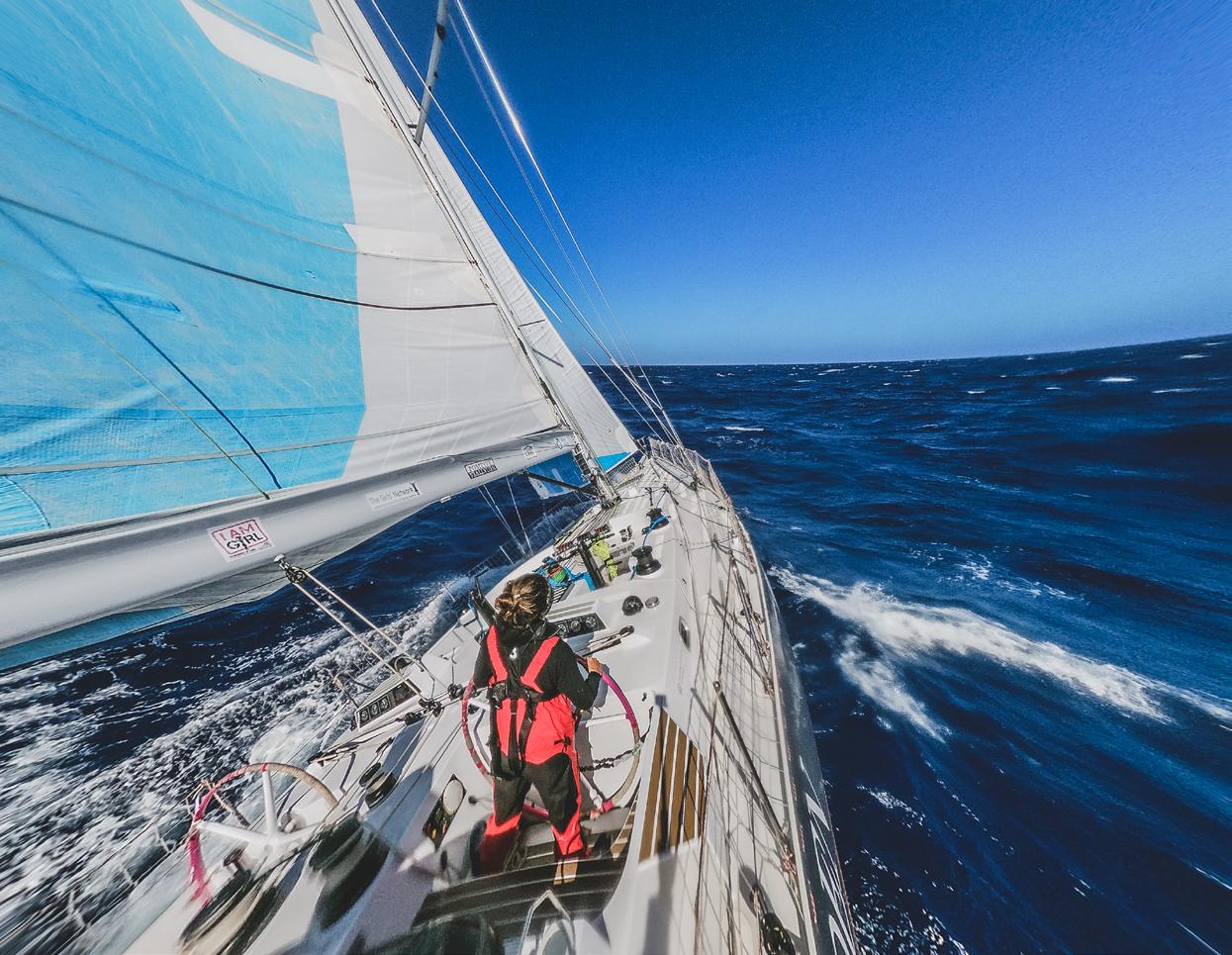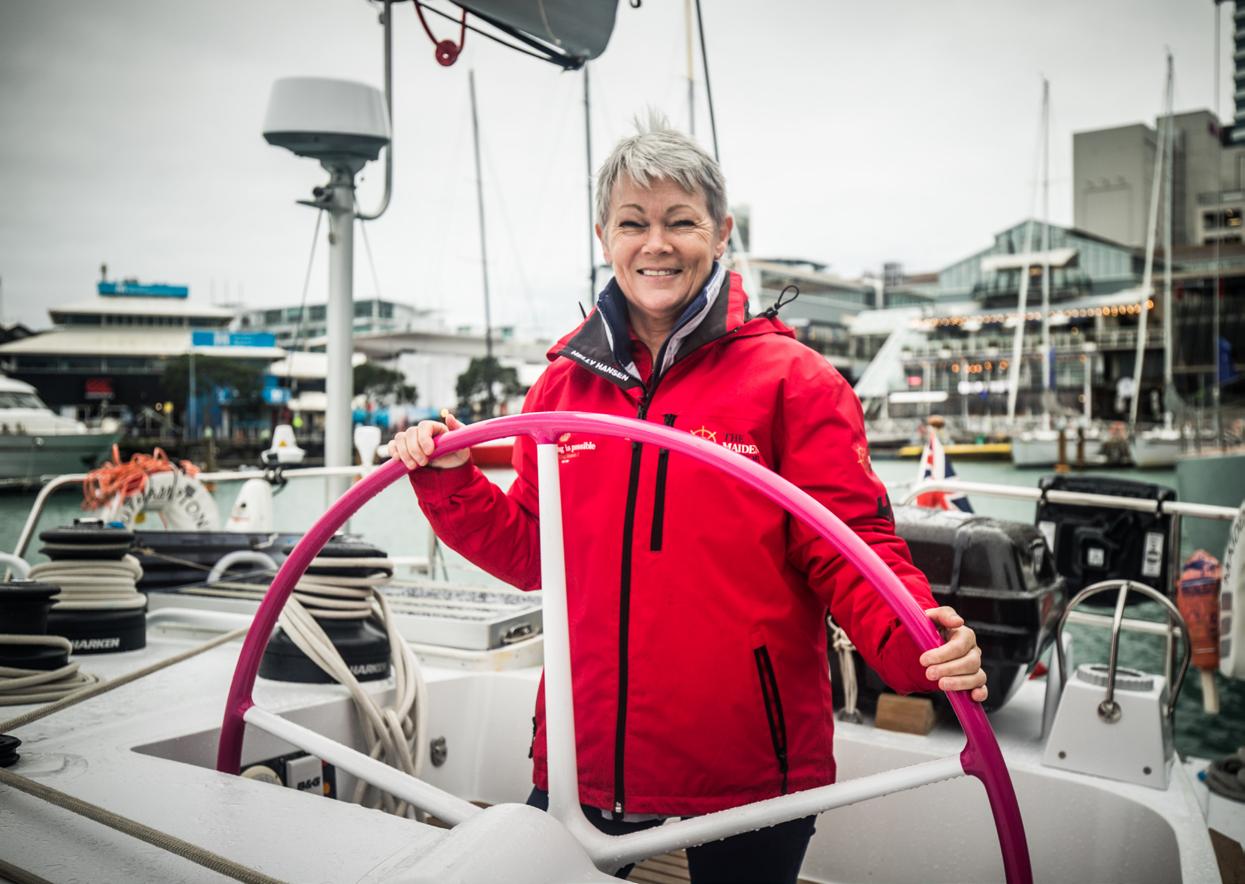
6 minute read
Game Changers issue 25
by PaulGC
Q From the documentary you appeared very headstrong as child. Do you think this is nature or nurture?
Advertisement
When I did my Psychology degree I was fascinated with this subject. I think it is a mixture of both. I know that I have a very strong personality but my Mum steering me in the right direction when I was going off the rails is the reason I did what I did.
Q Why sailing. How did your interest develop in this?
Q You had to remortgage your house to buy the boat. What was that pressure like?
The pressure was at times unbearable and I did not handle it well sometimes. I think driven people are hard to live and work with and I know I was driven. I didn’t ask for help which was immature I guess so people only ever saw the anger on the outside.
Q What struck me was the incredibly low quality of the Guardian journalist in reporting you, was it always like this back then?
I was working in bar in Greece and a guy came in and offered me a job. Total luck. But then my love for the ocean and the people that sail them drew me to a lifelong love affair.
Q In the 1980’s sailing was a very male dominated sport. How were you treated?
Before I started racing, I worked on charter yachts where everyone just gets on with it! Racing was very different and men didn’t want women on racing yachts. There was a definite attemot to put us off joining racing yachts.
Q What was it like being a cook on the first trip?
It seemed incredibly cramped, how do you manage the logistics of this? Most of the guys on Atlantic Privateer were mates before I joined so to that extent, we got on OK. When you are all in the same boat (so to speak!) you just get on with it. I had to put up with the same as them and in the end they resepcted that I think.
Q What were people’s reactions when you first said you wanted to have an all-female team in the around the world race?
Mostly hostile and incredulous. However, we did have help and support from some of the Maxi Skippers. Guys who didn’t sail were the worst. There was definitely a move to keep us out of the race. But, as we stuck at it, some of the guys came around. Yes it was. However, in Bob’s defence he did allow us to change his mind. When we won coming into NZ his headline was ‘Not just a tin full of tarts; A tin full of smart, fast tarts! Yes I know it was not ideal but at least it had improved somewhat. Bob also came down to see Maiden into Hamble when rescued her. He was interviewed me about The Maiden Factor and I said “Bob you have come a long way” to which he replied “I had a good teacher!”
Q Despite all the odds you entered the race. How did you choose your crew mates?
It was not in a conventional way. Women turned up and we tried them out. Mostly it was down to personality and stamina and how much we could learn about the area allocated to us.
Q You had what seemed to be a difficult relationship with your second in command. When you parted ways with her, was it hard to do?
At the time I couldn’t await to get rid of her but we made up years later and I was able to apologise for treating her so badly and not letting her go in time to find another yacht. I do regret my immaturity at dealing with the situation.
Q What was the feeling like winning the leg of the race?
Unlike nothing that had gone before in my life. It was the best feeling ever and so great to be roved right. We were all on a high for days!
Q From the documentary you appeared very headstrong as child. Do you think this is nature or nurture?
When I did my Psychology degree I was fascinated with this subject. I think it is a mixture of both. I know that I have a very strong personality but my Mum steering me in the right direction when I was going off the rails is the reason I did what I did.
Q Why sailing. How did your interest develop in this?
I was working in bar in Greece and a guy came in and offered me a job. Total luck. But then my love for the ocean and the people that sail them drew me to a lifelong love affair.
Q In the 1980’s sailing was a very male dominated sport. How were you treated?
Before I started racing, I worked on charter yachts where everyone just gets on with it! Racing was very different and men didn’t want women on racing yachts. There was a definite attemot to put us off joining racing yachts.
Q What was it like being a cook on the first trip?
It seemed incredibly cramped, how do you manage the logistics of this? Most of the guys on Atlantic Privateer were mates before I joined so to that extent, we got on OK. When you are all in the same boat (so to speak!) you just get on with it. I had to put up with the same as them and in the end they resepcted that I think.
Q What were people’s reactions when you first said you wanted to have an all-female team in the around the world race?
Mostly hostile and incredulous. However, we did have help and support from some of the Maxi Skippers. Guys who didn’t sail were the worst. There was definitely a move to keep us out of the race. But, as we stuck at it, some of the guys came around.
Q You had to remortgage your house to buy the boat. What was that pressure like?
Tracy Edwards Around the World Yachtswoman & motivational speaker

The pressure was at times unbearable and I did not handle it well sometimes. I think driven people are hard to live and work with and I know I was driven. I didn’t ask for help which was immature I guess so people only ever saw the anger on the outside.
Q What struck me was the incredibly low quality of the Guardian journalist in reporting you, was it always like this back then?
Yes it was. However, in Bob’s defence he did allow us to change his mind. When we won coming into NZ his headline was ‘Not just a tin full of tarts; A tin full of smart, fast tarts! Yes I know it was not ideal but at least it had improved somewhat. Bob also came down to see Maiden into Hamble when rescued her. He was interviewed me about The Maiden Factor and I said “Bob you have come a long way” to which he replied “I had a good teacher!”
Q Despite all the odds you entered the race. How did you choose your crew mates?
It was not in a conventional way. Women turned up and we tried them out. Mostly it was down to personality and stamina and how much we could learn about the area allocated to us.
Q You had what seemed to be a difficult relationship with your second in command. When you parted ways with her, was it hard to do?
At the time I couldn’t await to get rid of her but we made up years later and I was able to apologise for treating her so badly and not letting her go in time to find another yacht. I do regret my immaturity at dealing with the situation.
Q What was the feeling like winning the leg of the race?
Unlike nothing that had gone before in my life. It was the best feeling ever and so great to be roved right. We were all on a high for days! Q How did you keep your crew mates inspired and operating at optimal levels?










